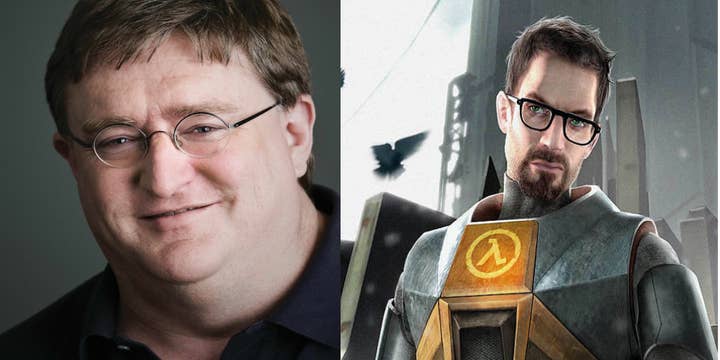GDC: 2013 - Hothead Rants Pt. 1: Mitu Khandaker
The Tiniest Shark founder on race and representation in games
For me, the highlights of GDC are always the rant sessions. Organised by Jason Della Rocca and Eric Zimmerman, these quickfire theatres give the industry's angriest minds a chance to vent what's been bothering them about the industry to a hall packed with their peers.
This year's hothead's rant - the ninth year that it's run at the San Francisco show - was a particularly rich crop of fury, outrage and rabble-rousing. Each speaker had their own points to make, but each raised an issue which clearly chimed resonantly with the crowd, resulting in more than one standing ovation.
We'll be running full transcripts of them all this week, in no particular order, but we're starting with Mitu Khandaker, founder of independent studio The Tiniest Shark, speaking about race and representation in modern games.
Each rant is likely to contain at least a little swearing, which we've left in for the full effect. Read on in an angry voice...
Mitu Khandaker: Race and Representation
"I feel weird about this because originally I was wanting to rant about some completely unrelated things. Whilst I was doing that, the topic of race came briefly to mind. Even more briefly, a part of me thought 'I don't want to be the angry minority ranting about race, do I?' The fact that I even thought that made me even more angry. So here I am, angry and ranting about race and ranting about being angry about being angry about ranting about race, so I'm going to be that person whether you or I like or not.
"If you pluck someone at random from the face of the earth, there's only a one in five chance that their skin will be white"
"The representation of people of colour in games is a bit shit, frankly. We live in a world where, if you pluck someone at random from the face of the earth, there's only a one in five chance that their skin will be white. And yet, if you look at games, that's not reflected at all. When we do see people of colour in games, they're often reduced to the sidekick, and usually pretty stereotypical ones at that. There are occasionally good examples, of course - like Assassin's Creed Liberation or Papa and Yo, but they're part of only a handful of examples. We need to do so much better.
"I know some of you might be rolling your eyes at the token brown girl right now, but I'm used to not getting it either. So, a couple of years ago, even, if someone had asked me what I thought about the representation of race in games - I didn't think it was much of a problem. I mean, if I really thought about it I might have answered that there weren't many people of colour in games, but I didn't think that was a problem.
"I'm 100 per cent able and willing to identify with white male characters - I don't need characters to look like me to identify with them. That would be really weird, right? I don't feel alienated - I don't need a developer to pander to me. Except...if you're white, you're kind of always pandered to, even if you didn't ask to be. If you're white, it's not very often that you're asked to identify with a non-white character. I'd grown up having to do something none of my white friends had ever had to do. I hadn't even thought about that.

"So basically, I'd internalised the status quo - I'd sort of internalised racism. Now, a quick racism 101. Racism is not just being intentionally mean to someone on the basis of their skin colour. Racism is a systemic thing which assumes that white is normal and that people of colour are the 'other'. It's why white males are apparently thought of as default. That kind of thinking is actually really drilled in to us - that's the status quo, that's what normal is.
"So last year I announced my game: Redshirt. I released a logo - Redshirt is a social sim-game where you create your own character so for the logo we commissioned some artists to create some random human characters. So, there's a white dude and a brown lady. Then people kept asking if the brown lady was supposed to be me, because when a person releases a game where the main character is the same ethnicity as them, it's obviously equivalent.
"You can have all kinds of nuance with white guys, but us brown girls are all inter-changeable. This is the other component of why representation is so important. It's not necessarily about whether or not a player feels like a particular character speaks to them, but because, as creators of content, we are the ones who get to decide what normal is. Because we don't live in a vacuum - people who play games play them alongside movies, television, shit their parents tell them, and the way that they see the news presents minorities. It shows not only what you think of minorities, but also what minorities think of themselves. It tells us that our stories aren't important, that white male is default, that that's what is normal.
"As creators of content, we are the ones who get to decide what normal is"
"It's this misplaced value on the unerring power of normal that makes people uncomfortable some times when discussing race. For those people, the notion of wanting to see more non-white characters is somehow 'politicising' things. Or perhaps, my most hated of phrases, that you're just being 'politically correct'.
"As if being 'politically correct', or just treating people who are different from you like fucking human beings, is exerting some sort of special effort because you're not being genuine or because you're some sort of holier-than-thou type. Fuck. That.
"If you think that pushing minority representation in games is pushing some kind of agenda, or you're just being 'politically correct', you're pushing an agenda every day. It's already fucking political. It's always been political and the only reason that we don't realise it is because it's been so political for so fucking long. Simply going along with things as they are and not rocking the boat is still political.
"If you think that pushing minority representation in games is pushing some kind of agenda, or you're just being 'politically correct', you're pushing an agenda every day"
"So when people say that they don't see race, it's generally because they've never had to and that is a political thing. I've even heard a handful of well-meaning people heading in the other direction and avoiding all representation of ethnic minorities in games at all because they're afraid of being offensive. The answer is simple - just ask questions, speak to minorities.
"The thing is, it's possible that not everyone might have the answers, and I can't speak for other minorities myself, or even other members of my own ethnic minority, but you need to ask anyway. Life is about learning and growing as people. If you're afraid of making missteps around people who don't look like you and don't treat them with the same confidence as you otherwise would, what are you really afraid of? That they might tell you off and give you a chance to grow as a person?
"Just ask questions. There's been a lot of work done recently to raise awareness of sexism in games, but I think it's important to realise that the same principles also apply to all other aspects of identity. As we examine privilege in all its forms, and slowly redefine what normal is, then I think we start to find ourselves in a more inclusive place - then I don't have to be up here, a token brown girl, ranting about race.

